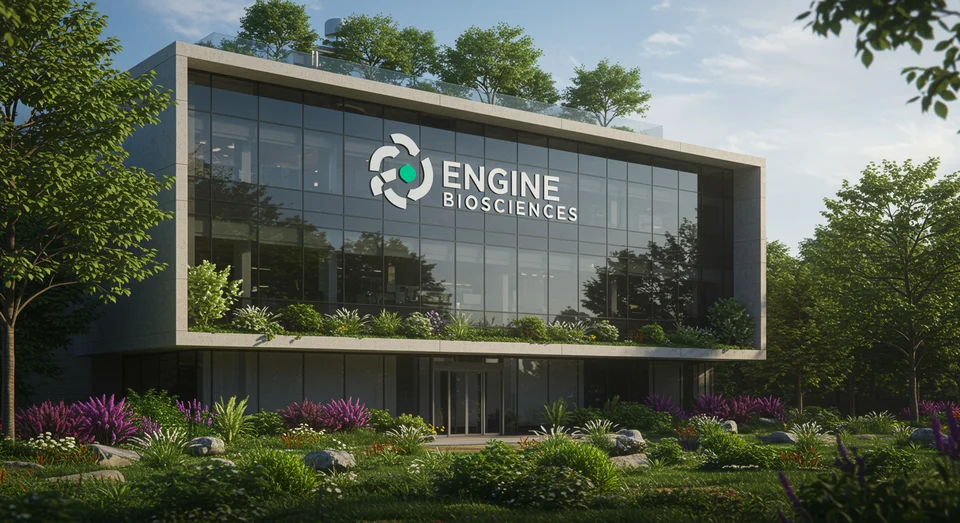Engine Biosciences and EDDC Partner to Develop Precision Cancer Therapeutics Targeting Genetic Mutations
348 views
In a groundbreaking alliance poised to reshape the future of oncology, Engine Biosciences and Singapore's Experimental Drug Development Centre (EDDC) have unveiled their inaugural collaboration aimed at developing precision cancer therapeutics. This partnership, which fuses cutting-edge artificial intelligence and computational biology with world-class drug discovery expertise, seeks to confront some of the most pervasive cancers—breast, liver, kidney, and prostate—through a patient-centric lens. Central to their efforts is ENB-871, a novel drug target and biomarker that promises to revolutionize treatment outcomes for individuals with specific genetic mutations, potentially benefiting over half a million patients annually on a global scale.

A New Frontier in Precision Oncology: The Promise of ENB-871
The collaboration between Engine Biosciences and EDDC represents a significant leap forward in the pursuit of tailored cancer treatments. At its heart lies Engine's NetMAPPR platform, a sophisticated AI-driven system designed to decode the genetic complexities of tumors and identify actionable therapeutic targets. This technology, paired with EDDC's expertise in drug discovery, forms a powerful synergy aimed at addressing the urgent need for precision-driven interventions in oncology.
The initial focus of the partnership is ENB-871, a drug target identified through Engine's computational platform. What sets ENB-871 apart is its dual role as both a therapeutic target and a biomarker for patient selection, enabling treatments to be precisely aligned with the genetic profiles of individual patients. This approach not only enhances the efficacy of the therapy but also minimizes the risk of adverse effects, a longstanding challenge in cancer treatment.
The collaborative effort will concentrate on developing small molecule degraders targeting ENB-871, a strategy designed to disrupt the function of cancer-driving proteins within tumors. Early studies have already demonstrated promising in vivo efficacy, suggesting that these degraders could represent a significant advancement in the treatment of genetically predisposed cancers. By addressing specific mutations in tumor cells, this approach has the potential to transform the therapeutic landscape for cancers that have traditionally been difficult to treat.
The Global Implications of Precision Cancer Therapeutics
While the scientific promise of ENB-871 is undeniably compelling, the broader implications of this collaboration extend far beyond the laboratory. Cancer remains one of the leading causes of mortality worldwide, with millions of lives claimed each year despite advancements in treatment. The ability to tailor therapies to the genetic makeup of individual patients represents a paradigm shift in oncology, offering hope to those who have long faced limited options and uncertain outcomes.
For cancers such as breast, liver, kidney, and prostate, which collectively account for a significant proportion of cancer diagnoses globally, precision-driven approaches like the one spearheaded by Engine Biosciences and EDDC could herald a new era of treatment. By focusing on genetic mutations that drive tumor growth, these therapies have the potential to not only improve survival rates but also enhance patients' quality of life—a crucial consideration in the fight against cancer.
Moreover, the scalability of Engine's NetMAPPR platform suggests that the benefits of this collaboration could extend to other cancer types in the future. As the platform continues to refine its ability to identify novel drug targets and biomarkers, it opens the door to a broader range of precision therapies, addressing unmet needs across the oncology spectrum.
A Partnership Built on Innovation and Shared Vision
The enthusiasm expressed by both Engine Biosciences and EDDC underscores the transformative potential of their collaboration. For Engine, this partnership represents an opportunity to demonstrate the capabilities of its NetMAPPR platform on a global stage, advancing its mission to leverage AI and computational biology in the service of human health. For EDDC, the collaboration aligns seamlessly with its commitment to pioneering drug discovery and translating scientific breakthroughs into tangible benefits for patients.
What sets this partnership apart is its emphasis on innovation as a shared endeavor. By combining Engine's technological expertise with EDDC's drug development capabilities, the collaboration exemplifies the power of interdisciplinary approaches in tackling complex medical challenges. It also highlights the importance of fostering international partnerships in the quest to address global health crises like cancer.
Reflections on the Future of Cancer Treatment
As the world continues to grapple with the immense burden of cancer, initiatives like the Engine Biosciences-EDDC collaboration offer a glimmer of hope. The focus on precision medicine, driven by advancements in AI and computational biology, signals a shift away from one-size-fits-all treatments toward a more personalized approach that prioritizes the unique needs of each patient.
However, the journey from discovery to implementation is fraught with challenges. Translating scientific breakthroughs into accessible therapies requires navigating regulatory hurdles, ensuring affordability, and addressing disparities in healthcare access. For precision cancer therapeutics to truly fulfill their promise, stakeholders across the healthcare ecosystem must work collaboratively to overcome these barriers.
In the case of ENB-871, the stakes are particularly high. With the potential to impact over 500,000 patients annually, the success of this initiative could serve as a blueprint for future collaborations in precision oncology. It also underscores the importance of investing in research and innovation, not only to advance scientific understanding but also to deliver tangible benefits to those who need them most.
As Engine Biosciences and EDDC embark on this ambitious endeavor, their partnership serves as a testament to the power of innovation and collaboration in addressing some of the most pressing challenges in healthcare. By harnessing the potential of AI, computational biology, and drug discovery, they are paving the way for a future where cancer treatment is not only more effective but also more humane—a vision that resonates deeply in a world yearning for progress.